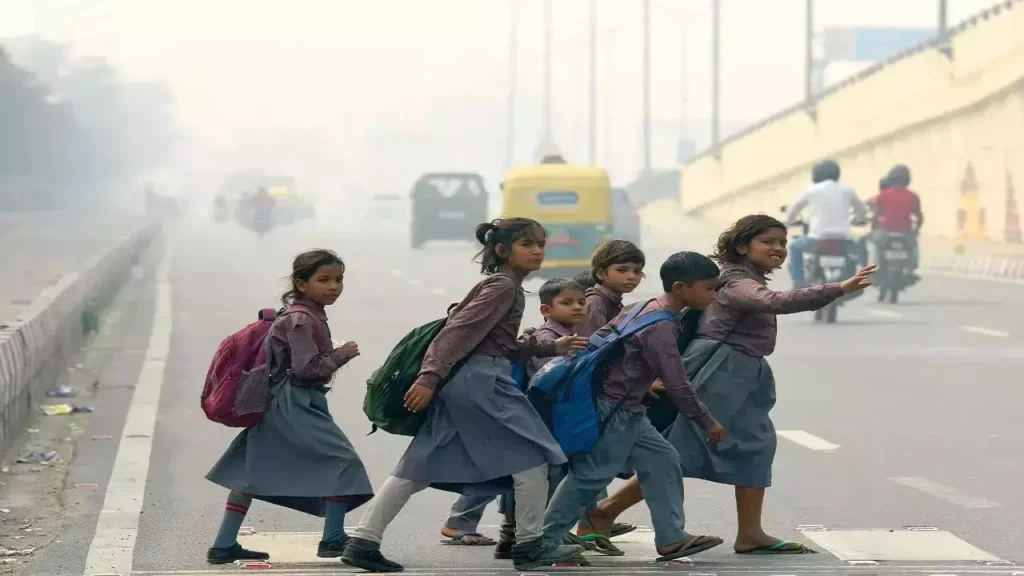Amidst the cold season, the capital region of Delhi-NCR has activated its Graded Response Action Plan (GRAP) to mitigate the detrimental effects of air pollution. From Sunday onwards, heightened inspections will be conducted, especially at identified hotspots and construction sites, to ensure compliance with the guidelines. Violators will face stringent action, including monetary penalties.
Moreover, construction sites exceeding 500 square meters, which haven’t registered with the relevant agencies, will face a halt in their operations. During this period, civic agencies will carry out mechanized cleaning, and there’s a strict prohibition against burning garbage in the open.
On Saturday, Delhi’s Air Quality Index (AQI) was registered at 166. If the AQI crosses 200, more severe restrictions will be imposed. Presently, the GRAP has been activated as a precautionary measure. In the cold season, the capital often becomes a gas chamber due to pollution from stubble burning, vehicular emissions, and dust. To alleviate this crisis and provide relief to its residents, the government is enforcing the GRAP.
Delhi’s GRAP Stages Explained
- Stage 1 (AQI between 201-300):
- Regular sprinkling of water on roads.
- Mandatory anti-smog guns at construction sites.
- Covering of construction materials and transport vehicles.
- Deployment of traffic police at checkpoints to manage noise.
- Restriction on the use of generators.
- Open garbage burning is prohibited.
- Strict adherence to PUC (Pollution Under Control) norms.
- Stage 2 (AQI between 301-400):
- Ban on diesel generators, except for emergency services.
- Prohibition of wood and coal usage in tandoors of hotels, restaurants, and dhabas.
- Increment in parking fees.
- Additional buses to be operated.
- Continuation of Stage 1 restrictions.
- Stage 3 (AQI between 401-450):
- Construction halt, except for essential activities. Plumbing and interior decoration-related works are exceptions.
- Brick kilns, hot mix plants, and stone crushers not using clean fuel will remain shut.
In a bid to curtail pollution from stubble burning, the Delhi government will facilitate the free dispersion of the Pusa bio-decomposer. Vehicles will be monitored for PUC certification. Additionally, strict implementation against diesel vehicles older than 10 years and petrol vehicles older than 15 years is underway, with 385 teams formed for this purpose. Like previous years, a complete ban on the production, storage, sale, or purchase of fireworks within Delhi remains in effect.
The city has identified 13 critical pollution hotspots. Separate action plans have been crafted for these regions. Various teams have been assembled to monitor construction sites. Larger construction sites are mandated to register on a web portal for dust control, and those exceeding 5000 square meters are obliged to install anti-smog guns.
The government’s proactive stance ensures that measures are in place to tackle the perennial issue of pollution and safeguard the health of its residents.

